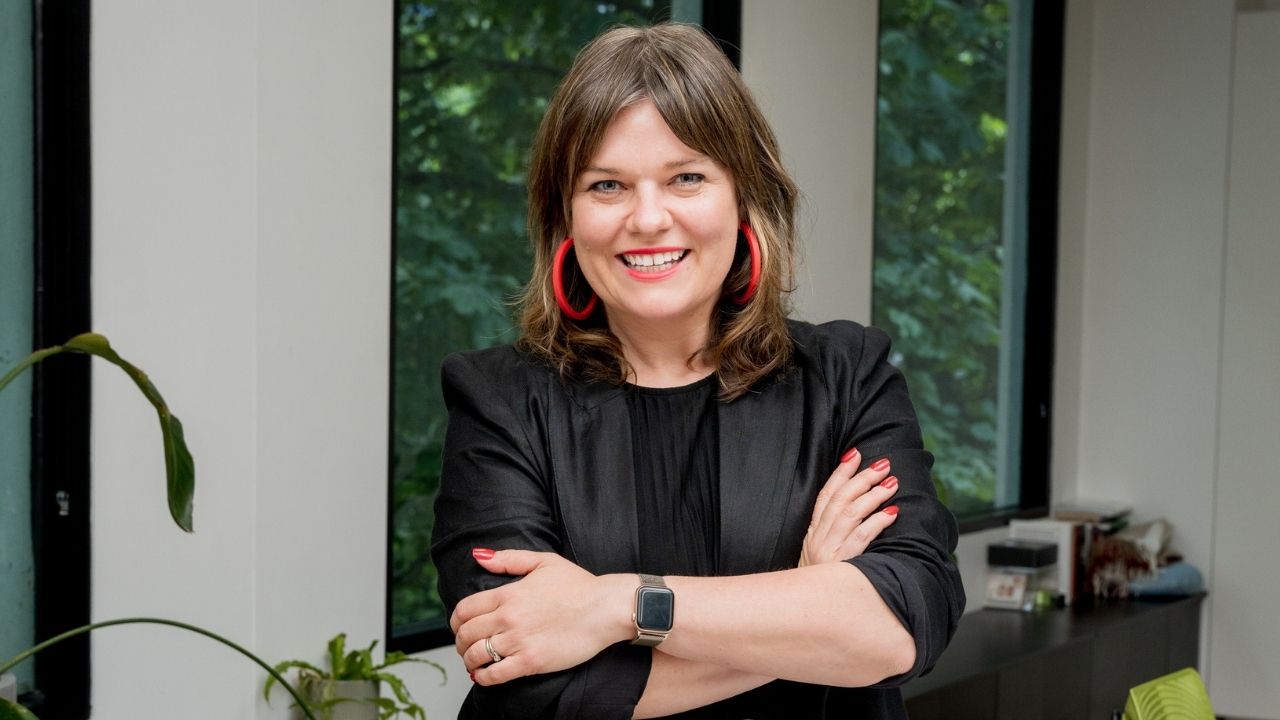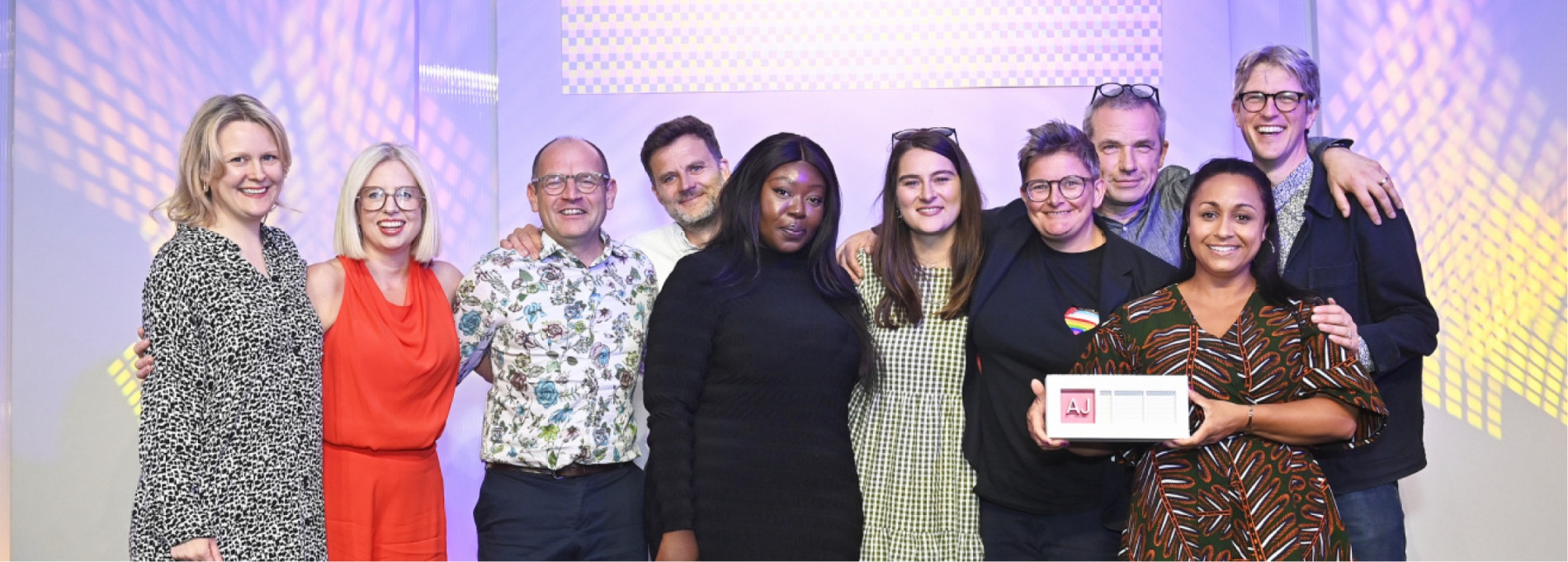
Balancing salary & benefits to attract top talent in architecture and design
Attracting the best talent isn't just about offering a competitive salary anymore. Architecture and design firms must focus on building a holistic package that includes both financial benefits and work culture, aligning with the values and needs of modern professionals.
In episode 5 of the Bespoke Careers Employer Branding Playbook, James Boggan, Director of Bespoke Careers’ Texas office, offers some excellent insights on how salary, benefits, and employer branding all play a major role in recruitment success.
Bespoke Careers’ annual salary and benefits guide gives employers and jobseekers alike a clear understanding of pay trends, helping you navigate one of the largest factors in employment decisions: salary.
Who is James Boggan?
James Boggan has been an integral part of Bespoke Careers for over twelve years. After building his career in Sydney and consulting for the London office, he now leads our team in Texas. With years of experience in both internal recruitment and agency-side work, James brings an informed perspective on how employer branding has evolved, particularly for architecture and design firms.
What exactly is employer branding?
Employer branding boils down to one thing: why should someone work for your company? It’s the narrative you build around what it’s like to be an employee at your firm. From values and mission to workplace culture, it’s the cohesive story you tell candidates to make your company appealing. However, it’s not just about getting people in the door – it’s about keeping them there. Authenticity is key. Empty promises about work-life balance without the support of reasonable paid time off (PTO) or flexibility won’t hold up.
Organizations that succeed in employer branding communicate their core values and culture clearly. It often starts from a simple place: having a compelling careers page on their website. Offering employee interviews, laying out attractive benefits, and building a welcoming social presence make it much more likely top candidates will be interested. If your branding doesn’t match the reality candidates experience when they get onboarded, you’re setting yourself up for high turnover. The firms that are more genuine in their communication win in the long run.
How has employer branding evolved?
Over the past decade, the competition has only gotten tougher. Twelve years ago, employer branding was a term most architecture and design leaders hadn’t even heard of. Now, companies have realized it’s pivotal in beating the competition for talent. With the market tightening and skilled professionals more in demand than ever, many firms are pushing to stand out by investing in their branding strategies. But mere compensation isn’t enough anymore—it’s about aligning company culture and values with those of candidates.
James mentions that this has really shifted. Architects, designers, and other professionals need to know that when a company says they’re focused on, say, sustainable design or strong employee work-life balance, the firm truly walks the walk. Today, many firms are not just promising a strong work culture but are ensuring that these efforts resonate in daily operations.
Why salary isn’t the only factor anymore
Let’s be honest: salary matters. Always has, always will. But according to James, among top-tier candidates, salary alone often isn’t the main motivator for switching jobs. Architects and designers frequently seek career growth, work on exciting and impactful projects, and a healthy work-life balance over a minor pay bump. In architecture, where the salary range between firms may not differ vastly, candidates are often more focused on progression than a salary increase.
When it comes to talent retention, the best benefits go beyond the paycheck. How you align those benefits with your firm’s brand is crucial. For example, a firm that preaches work-life balance but offers the bare minimum for paid time off is sending conflicting messages. On the flip side, a company that incentivizes with robust benefits like extended PTO, parental leave, or flexible working hours shows genuine care for their team’s well-being.
Should remote work be considered a benefit?
Remote work is still a hot-button issue, especially in architecture and design, where team collaboration and spontaneous interaction in the office are often deemed key to the creative process. According to research conducted by Bespoke Careers, both employers and employees seem to agree on a hybrid model. The most common structure? Three days in the office, two days working remotely. This seems to be the sweet spot.
Still, some firms prefer a stricter office presence, potentially losing employees in the process. James stresses that while an in-office culture might align with your firm’s ethos, the talent pool you’re drawing from may shrink if you don’t offer some form of flexibility. As a result, many candidates—even for a one-day-per-week remote option—tend to gravitate toward firms that respect this balance.
Perks that make a difference
Aside from flexible work arrangements, what benefits are architecture professionals truly interested in? It’s no surprise that PTO is a big one. Some firms offer as little as 10 days, while others provide 20 or more. People tend to choose the latter, even if the salary is slightly lower. Additional leave options, such as extended maternal and paternal leave, are also crucial in the U.S. market, where statutory benefits often fall short.
Then there’s professional development: covering licensing fees and continued education costs can be a nice perk for candidates gearing up for pivotal moments in their careers. Sometimes, even small perks—like event tickets that align with the company’s culture—can make employees feel more connected and appreciated. For example, one of Bespoke Careers’ Austin-based clients annually gives staff tickets to a major local festival, doubling as a fun, team-building event. These kinds of creative benefits can go a long way in building a loyal workforce.
Deep dive into Bespoke Careers’ Salary Guide
Bespoke Careers’ Salary Guide is an essential tool for hiring managers and jobseekers alike. Covering 10 regions worldwide, this guide lists competitive salary ranges for over 100 roles across architecture, interior design, and more. Whether you’re looking to benchmark your salary against peers or strategize for attracting top talent, this resource is indispensable.
Accessing the guide is easy, you can browse by location or download the PDF. It allows both firms and candidates an insider look into salary expectations and even global opportunities. Curious about what architects in Sydney are earning versus those in LA? This guide delivers the data you need to decide if relocating makes sense.
Key takeaways – how to compete for top talent
1. Keep it real.
Your employer branding should mirror what it’s actually like to work at your firm. Fake promises lead to high turnover.
2. Offer more than a paycheck.
Beyond competitive salaries, focus on benefits like PTO, remote work options, and family leave that align with your values.
3. Get creative with perks.
Sometimes, a simple team-building event or a few extra days off makes a bigger impact than a marginal salary increase.
4. Be transparent.
Outline your values and culture on your careers page and LinkedIn. Make it easy for candidates to see why they should work for you.
By focusing on both pay and perks and building an authentic employer brand, you’re setting your architecture or design firm up for long-term success.
Access the Bespoke Careers Salary Guide now and start benchmarking your firm against the competition!


Looking to hire top talent
 or advance your career? Let's talk.
or advance your career? Let's talk.
We connect exceptional firms with talented professionals.
Whether you're looking to hire or explore new career opportunities, let’s discuss how we can help you achieve your goals—get in touch today.
Related Posts

Bespoke Careers sponsors the AJ100 Employer of the Year Award, which recognises UK architectural firms with market-leading workplace cultures.
Lucy Cahill, Bespoke Careers London director and AJ100 awards judge, discusses what it takes for a firm to be recognised as Employer of the Year and the ingredients of HTA Design’s success.
We’re often asked about whether it’s best to work for a large or small architecture and design firm.
For newly qualified architects or designers, your decision to work for a large or small company will be influenced by your career goals, working style, ambition and even your personality.
In this episode of the Bespoke Careers Employer Branding Playbook, we sit down with Ayo Abbas, a marketing expert in the built environment, to explore how strategic marketing can help architecture and design firms build a strong employer brand.



